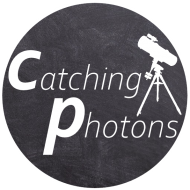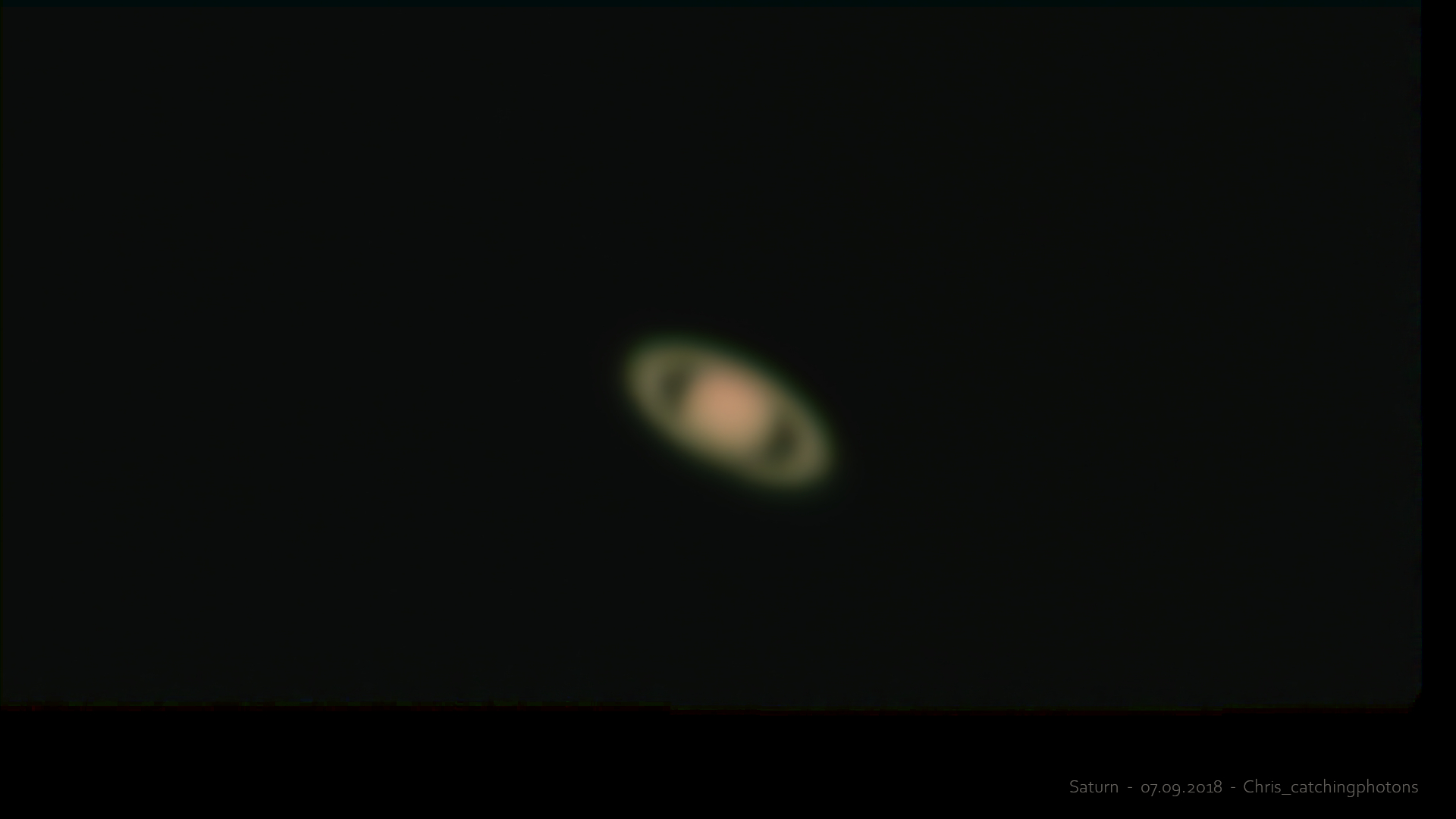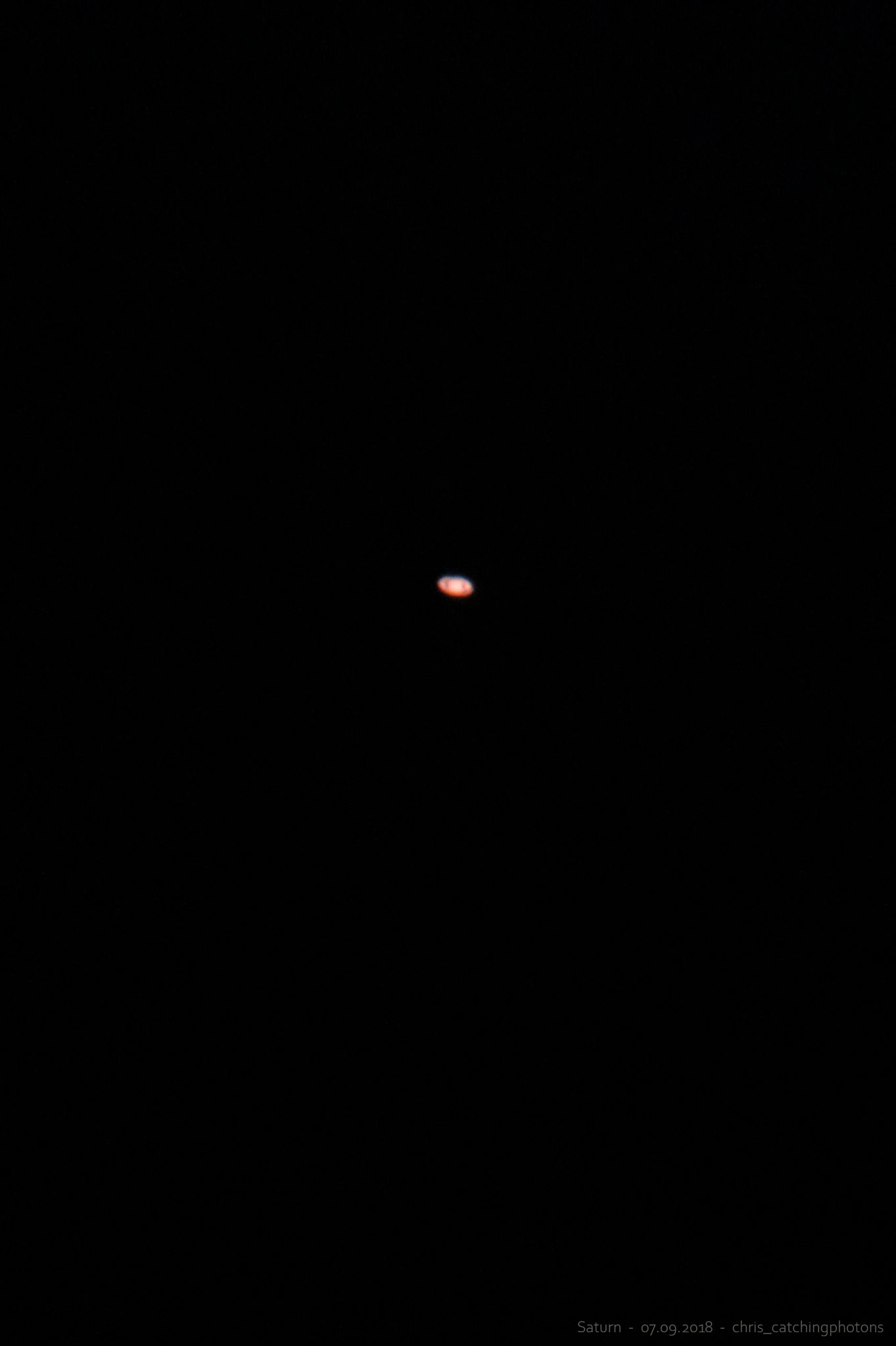07.09.2018
New aspect: First images taken with the old Canon SX240HS
Acquisition:
So after a while the sky cleared. I had some friends on board and after viewing some targets of the late summer (M31 and M13) we switched to the planets.
First we found Saturn on the sky. If you see Saturn and its rings for the first time you will know what I mean with ‚we gazed at Saturn‘. It was a breathtaking view. A tiny dot on the sky turns into a rotating planet with moons and a beautiful ring! In a hurry I pointed my smartphone above the eyepiece and see: the first astro photo of my life was taken!
Then we decided to give the old “Canon PowerShot SX240 HS” a try and cliped it in front of the 10mm with Barlow lens attached. First we refocused Saturn on the night sky and then I took a bunch of single shots in .jpeg mode and then a short video (.mov). The video mode on the Canon SX240 can’t be modified so the resulting image was rather dark and blurry. Due to the dark images I couldn’t properly focus Saturn.
After saturns acquisition we swapped to mars and tried the same again. Mars was very (and I mean very) low above the horizon and even visually it was a reddish blob, dancing around the FOV.
We didn’t know what to do else so we stopped there and tried to process the bunch of images.
Processing:
It was the first time I used Autostakkert!2 and Registax. The stacking in Autostakkert took ages, because we took full resolution jpeg images. With every image around 4MB the process was very slow. Drizzle and other advanced settings were all new to me and even the basic handling of the dozens of buttons kept me busy. At the end the results were nothing more than blurry images of saturn and the reddish blob of mars. It took me hours to sharpen everything in Registax but without anything proper to work with and my hurdles with the program interface nothing more could be expected. At least: the first images, one can see Saturn’s rings and Mars is a disk and more then the shiny dot in the sky I saw before. It’s a start, a beginning of a long journey.
Greetings,
Chris







